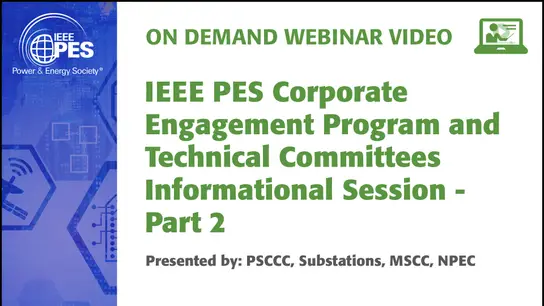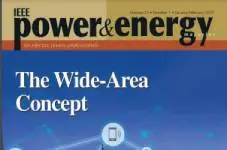-
Members: FreePES
IEEE Members: $10.00
Non-members: $20.00Length: 01:10:27
Panel Session
04 Aug 2020
Electric power systems are continuing to undergo profound transformations. These include (i) the need to curb emissions from the supply side (i.e., the move towards a low carbon economy) that has led to deeper penetrations of variable energy resources and not only resulting in cleaner lower energy but also higher net demand variability and uncertainty. The increased variability and uncertainty also increases the needs for ancillary services to maintain power balance; (ii) the progress on solid-state interfaces is resulting in significant generation connected to the grid via inverters at different voltage levels. This reduces the visibility that system operators have on the system net generation as well as the overall system inertia at any given time; (iii) newer energy storage technologies are being developed featuring higher power and energy densities and lower costs. These resources have the ability to defer energy needs forward in time, as well as to reduce system risk by firming up energy form different energy resources; (iv) there are even greater interdependencies with other sectors including gas and water, and reliance on cyberinfrastructure with nonhomogeneous security levels, thus increasing the risk for potential disruptions, malicious attacks to the system, under conditions for which the power system was previously immune; (v) more distributed energy resources and connected systems (with the ability of working in both islanded and grid-connected modes) are being developed in response to resilience concerns and disruptions, these are enabling customer-side engagement and participation and potentially the ability to manage system risk. All the aforementioned changes are affecting not only the short-term uncertainty but also the long-term uncertainty, making the reliable operation and planning of adequate and coordinated generation and transmission expansion harder. As a consequence, power system operators and planners are in dire need of metrics to assess risk as well as of methods to mitigate this risk while meeting the fundamental objectives of economic efficiency, security, and sustainability of power systems.
This panel will explore these challenges as well as shape the discussion on the research needed to explicitly quantify and respond to system risk. The panel is composed of several experts with a track record on in this field.
This panel will explore these challenges as well as shape the discussion on the research needed to explicitly quantify and respond to system risk. The panel is composed of several experts with a track record on in this field.
Chairs:
Miguel Ortega-Vazquez, Alberto Lamadrid
Primary Committee:
Power System Operations, Planning & Economics (PSOPE)
Sponsor Committees:
Power System Economics Subcommittee


